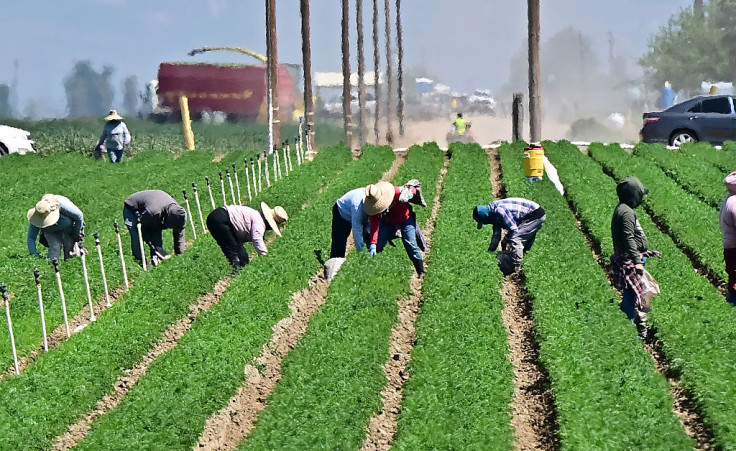
The Farm Workforce Modernization Act, a bipartisan proposal that aims to address critical labor shortages in the U.S. agricultural sector through a combination of legalization for undocumented farmworkers and reforms to the H-2A guestworker visa program, has made its way through Washington and now heads to the Senate after passing the House.
The bill, led by Representatives Dan Newhouse (R-WA) and Zoe Lofgren (D-CA), comes amid warnings from growers that labor shortages could lead to rising food prices, disrupted supply chains, and long-term harm to domestic agriculture.
"The workforce crisis has come to a boiling point for farmers across the country," said Rep. Newhouse in a statement in early April. "This legislation is necessary to lay the groundwork for continued negotiations, and I am committed to working closely with my colleagues to enact long-term, durable reforms to our agriculture guest worker programs."
"This is a common-sense, bipartisan solution," added Rep. Jim Costa (D-CA). "It provides stability for our farmers and dignity for the workers who feed America." Fellow Congressman from across the aisle, David Valadao (R-CA), agreed:
"The current H-2A program doesn't meet the labor needs of many producers. But the Farm Workforce Modernization Act is a positive step... Food security is national security."
The proposed legislation includes three major components, as Migrant Insider explained in detail in a sprawling piece last week.
The first would allow undocumented farmworkers who have worked in the U.S. agricultural sector for at least 180 days over the past two years to apply for Certified Agricultural Worker (CAW) status. CAW status is renewable with continued annual work. Workers could then pursue permanent residency by completing additional years of agricultural labor—four years for those with a decade of prior experience, eight years for others—after passing background checks and paying a $1,000 fine. Spouses and minor children would also be eligible.
The second section of the bill modernizes the H-2A visa program by streamlining applications through a centralized electronic platform, allowing single petitions for staggered labor needs, and transitioning recruitment from print to online postings. It authorizes three-year H-2A visas, caps wage increases at 3.25% annually for most areas, and allocates 20,000 visas annually for year-round agricultural jobs like dairy—potentially adjustable based on labor demand.
The bill also introduces a Portable Agricultural Worker pilot program for up to 10,000 workers, expands access to farmworker housing through $1 billion in federal support, and extends protections under the Migrant and Seasonal Agricultural Worker Protection Act to H-2A workers. It mandates registration of foreign labor recruiters to enhance oversight.
Finally, the legislation phases in mandatory use of the E-Verify system for agricultural employment nationwide—but only after legalization and H-2A reforms are implemented. Protections for lawful workers misidentified by the system are included.
© 2025 Latin Times. All rights reserved. Do not reproduce without permission.









